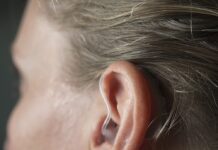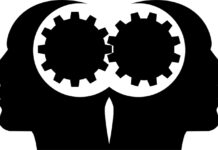
The beating sound of your heart is caused by the valves, they open and close routinely, and in a specific rhythm. Google is developing algorithms that can predict heart attack by looking in your eye! This, according to research published in Nature Biomedical Engineering.
Most heart attacks happen on a Monday. Not to be scrooge, but December 25th, Christmas Day is the most common day of the year for heart attacks.
In an average day, your heart pumps about 2,000 gallons of blood around. Compare that to a 6-person hot tub which holds about 450 gallons of water. The fairy wasp has the tiniest heart on record, whereas blue whales have the largest one, about 5 feet long.
I received two questions today. The first came from Tom who lives in Oklahoma, and he asked me if antibiotics could impact his heart. Since antibiotics are drug muggers of almost all vitamins and minerals, the answer is “Yes!” You need nutrients to keep your heart beating properly, because they catalyze the electric system.
Tom took Clarithromycin, as part of triple therapy for his ulcer. Clarithromycin is a popular anti-bacterial sold worldwide. The United States FDA has known about heart problems with this drug, and has been warning doctors not to prescribe it to folks with known heart disease for approximately 12 years. More data was released today that confirms that people who took the antibiotic years ago (for even two weeks) might have a higher risk of dying from heart disease years later. It doesn’t matter what condition you take the drug for, whether it’s for ulcers, sinus infections or wounds, it can still impact the cardiovascular system and FYI, it’s not alone. Many antibiotics impact your heart.
So if your doctor prescribes the medication Clarithromycin (brand is Biaxin) and you already have heart disease or hypertension, I’d remind doc of your condition in light of the recent studies. Don’t trust them to know everything. If you’ve had a heart attack or have heart failure, it’s not out of line to ask for a different antibiotic. This reminder (about your medical history) becomes particularly important if you go to a walk-in clinic instead of your regular physician.
My second question came from Brad in Florida regarding his pacemaker. He asked if it can be hacked. Yes, theoretically! Never say never.
Unscrupulous creeps could hack a pacemaker and reprogram it causing it to do erratic pulsing, deliver potentially fatal shocks or stop altogether by draining the battery. In order to do this, a hacker would need to know the brand name of your implanted device and its radio frequency. Then, we need an unethical person to reprogram that specific proprietary device and he’d have to get in close range to tinker with the software. Sounds like a movie plot! So breathe easy because the odds are low that anyone would hack your pacemaker. Adverse events are more likely to occur with some MP3 headphones, metal detectors, certain cellphones or MRI diagnostic scanners. But for sure, don’t worry about hackers!






